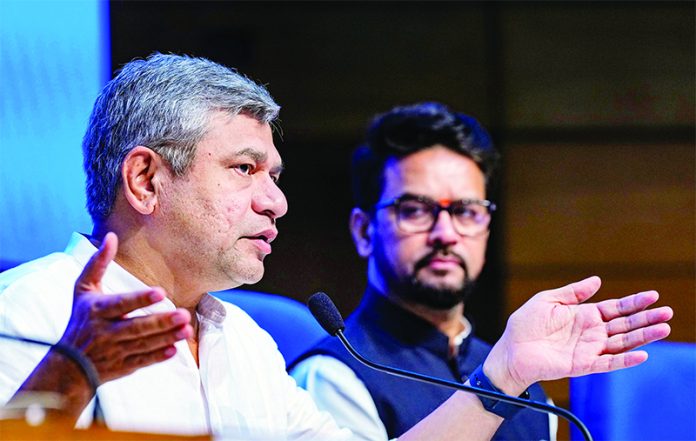NEW DELHI, Sep 11: Seeking to provide all-weather roads to 25,000 unconnected habitations across the country, the Union Cabinet chaired by Prime Minister Narendra Modi on Wednesday approved the proposal to implement Pradhan Mantri Gram Sadak Yojana – IV with an estimated cost of Rs 70,125 crore.
The scheme would be implemented during 2024-25 to 2028-29.
“The financial assistance is to be provided for the construction of 62,500 Kms road for providing new connectivity to eligible 25,000 unconnected habitations and construction/upgradation of bridges on the new connectivity roads. Total outlay of this scheme will be Rs 70,125 crore,” an official statement said.
Of the total outlay for the scheme, the central government’s share is pegged at Rs 49,087.50 crore while those of states at Rs 21,037.50 crore.
“Under this scheme 25,000 unconnected habitations of population size 500+ in plains, 250+ in NE & Hill Sates/UTs, special category areas (Tribal Schedule V, Aspirational Districts/Blocks, Desert areas) and 100+ in LWE (left wing extremism) affected districts, as per Census 2011 will be covered,” the official statement said.
The Cabinet also approved the “PM-eBus Sewa-Payment Security Mechanism (PSM) scheme” for procurement and operation of e-buses by Public Transport Authorities (PTAs) with an outlay of Rs 3,435.33 crore.
This scheme will support deployment of more than 38,000 electric buses (e-Buses) from FY 2024-25 to FY 2028-29. The scheme will support the operation of e-buses for a period of up to 12 years from the date of deployment.
At present, the majority of buses operated by public transport undertakings run on diesel/CNG, causing adverse environmental impact. On the other hand, e-buses are environment friendly and have lower operational cost.
In another key decision, the apex decision-making body also cleared ‘Mission Mausam’ with an outlay of Rs 2,000 crore over two years. The scheme is envisaged to be a multi-faceted and transformative initiative to tremendously boost India’s weather and climate-related science, research, and services.
“Mission Mausam will directly benefit numerous sectors, such as agriculture, disaster management, defence, environment, aviation, water resources, power, tourism, shipping, transport, energy, and health. It would also enhance data-driven decision making in areas such as urban planning, road and rail transport, offshore operations, and environmental monitoring,” said the government. *(UNI(


